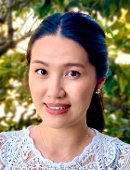Biography
Research Topics
Autism, Cognitive Neuroscience, Electrophysiology, Hippocampus, Memory, Neurobiology, Neuromodulation, Neuropeptides, Neuroscience, Neurotransmitters, Synapses, Synaptic Plasticity, Systems Neuroscience
Autism, Cognitive Neuroscience, Electrophysiology, Hippocampus, Memory, Neurobiology, Neuromodulation, Neuropeptides, Neuroscience, Neurotransmitters, Synapses, Synaptic Plasticity, Systems Neuroscience
Multi-Disciplinary Training Area
Neuroscience [NEU]
Neuroscience [NEU]
